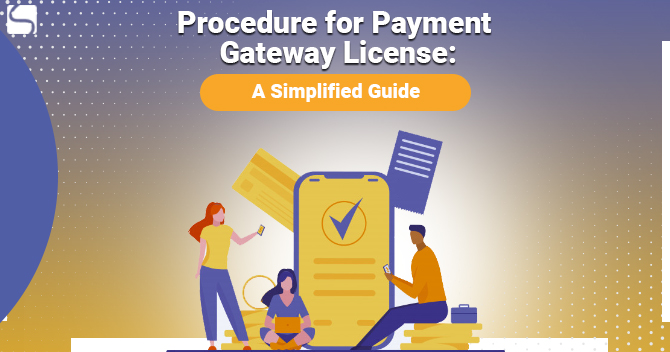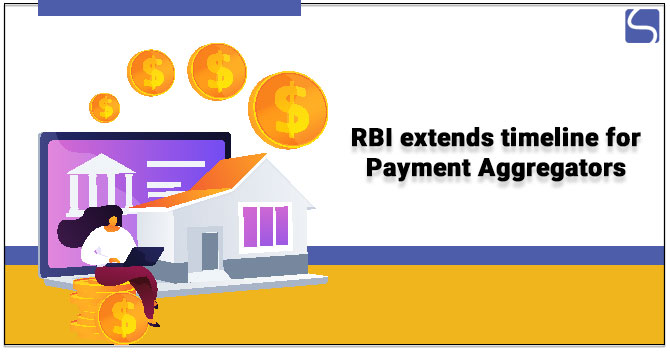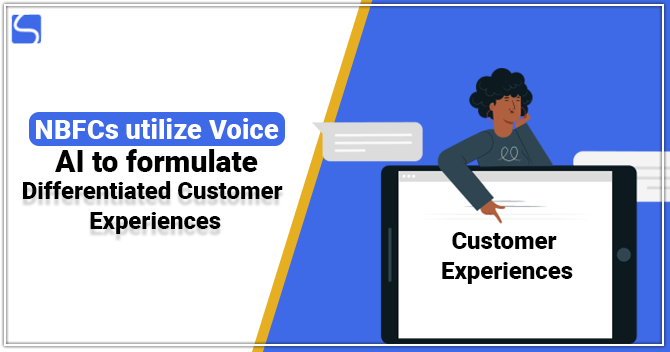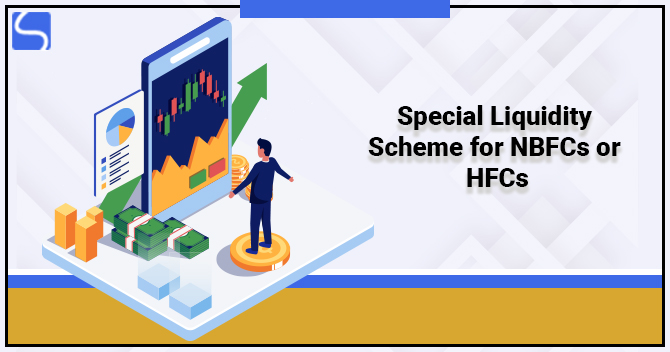Procedure for Payment Gateway License: A Simplified Guide

Karan Singh | Updated: Feb 23, 2021 | Category: Payment Gateway System, RBI Advisory
After the demonetization, people in India have experienced the flexibility and ease of online shopping. Payment Gateway is a financial service, and it is provided through an e-commerce application. Apart from online shopping, even the payment of bills, DTH recharge, mobile recharge, etc. are also taking the path of the digital or online approach. We pay a bill or purchase anything online, we have to click pay now, and we are directed to a new page. This is the payment gateway site on the website where we can make payment for goods or services, and the payment gateway site must get furnished with the payment gateway license. The complete procedure for payment gateway license is directed under the Payment and Settlement System Act, 2017. This is set up by the Reserve Bank of India, which carries all kinds of regulations and management of India’s payment system. In this blog, we discuss the procedure for Payment Gateway License.
Table of Contents
Payment Gateway License – An Overview
It is essential to know the meaning of Payment Gateway License then you can start the procedure for Payment Gateway License in India. Payment Gateways are intermediate in between the websites and the banks promoting the delivery of transaction report. They collect the data from the payer bank and transmit the data to the receiving bank. Usually, they note their feedbacks, such as the transaction is rejected or approved.
The sensitive data should also be protected from any fraud and misrepresentation such as login credentials of internet banking, debit card number, credit card numbers, etc. Because of this reason, there are some governing security standards which should be followed by anyone getting the access of such information such as payment gateways by the card associations along with several rules and regulations. These rules and regulations are defined as the PCI-DSS or PCI (Payment Card Industry Data Security Standard).
Also, Read: Requirements for Payment Gateway License: A Complete Guide
Different Types of Payment Gateway Providers in India
In the Indian market, there are two different types of Payment Gateway Providers, which enables the business to approve payment from national or international customers in INR or Indian National Rupees. They work with the support of Net Banking and Debit or Credit Card arrangements. You can check the two different types of providers mentioned below:
- Second Party Providers: Parties starting from Rs. 30,000 (setup costs are very high) such as ICICI, HDFC, and Axis having low TDR or Transaction Discount Rate with lower transaction fees. It would be expensive initially for startups or small businesses, and there is no way going for this category of providers.
- Third-Party Providers: These providers such as CCAvenue, Direct Pay, EBS, and PayU which charges setup and annual fee, but some even don’t charge that. Most of them cost around 2% to 4% TDR (Transaction Discount Rate). By undoubted, the providers regarding the future business goals of the concern can somewhat get negotiated.
Basic Requirements for obtaining Payment Gateway License in India
Following are some requirement for obtaining Payment Gateway License in India:
- Minimum of two directors or members is required.
- Address proof of the business.
- Next five-year business plan.
- The company must be registered under the Companies Act, 1956 or 2013.
- Current Account and PAN of the company.
- Service Tax Registration Number.
- Compliance with PCI DSS.
- The flow of system and repost of code test by any software agency.
What are the Documents required for during the Procedure for Payment Gateway License?
Following are some vital documents required for during the procedure for Payment Gateway License:
- Submit a copy of Certificate of Incorporation (COI) of the company received from ROC or Registrar of Companies.
- Submit PAN card and address proof of the directors.
- Submit Digital Signature Certificate (DSC) and Director Identification Number (DIN) of the directors.
- Address proof of the registered office.
- Bank Account details of the company.
- Next five years of business plan of the company.
- Code testing report by a Software Agency.
What is the Procedure for Payment Gateway License in India?
Following is the detailed procedure for Payment Gateway License in India:
- The first step of the procedure for payment gateway license is to file an application in the specified Form A as per Section 5(1) of the PSS Act, and this application shall be made at the Central Office of the Reserve Bank of India (RBI) at Mumbai or other offices of the RBI as may be prescribed by it from time to time.
- According to Section 6, the approval from the RBI for granting the authorization is optional. The Reserve Bank of India has the power to hold such inquiries as it may consider for the satisfying purpose itself about the detail’s authenticity that the applicant has submitted and for checking the authorizations of the involved participants.
Following are some conditions the RBI shall take into account before issuing the authorization:
- The requirement for proposal payment services that have been suggested to be commenced by it.
- All the technical standards that have been set for the payment services of the proposed payment system.
- The terms and conditions including any security procedure for operation of the recommended payment system.
- The method in which the transfer is completed in the specified payment system.
- The manner for getting payment instructions that affect the payment responsibilities or duties under the proposed payment system.
- The financial experience status of the management and applicant’s integrity.
- The terms and conditions that monitor the customer relationship with the payment providers.
- Consider all the monetary and credit policies.
- Consider all the time frame for authorization.
- Once the Reserve bank of India is satisfied that all the requirements laid down in Section 7 (1) gets fulfilled, it may issue the certificate of authorization in Form B to start and carry on a payment system to the applicant.
- With a utmost period of six months, the Reserve Bank of India is required to process the authorization application, as per Section 4 of PSS Act. It can be articulated from the date on which the application has been filed for approval.
Conclusion
You can only complete the procedure for Payment Gateway License once you know all the requirements, documents required for obtaining Payment Gateway License. The payment gateway has linkups with several banks such as HDFC, ICICI, etc. If the bank refuses, then the payment gateways linkup with some other partner banks for the merchant agent registration. For more information, please contact Swarit Advisors.
Also, Read: How to become a Payment Gateway Service Provider in India?














